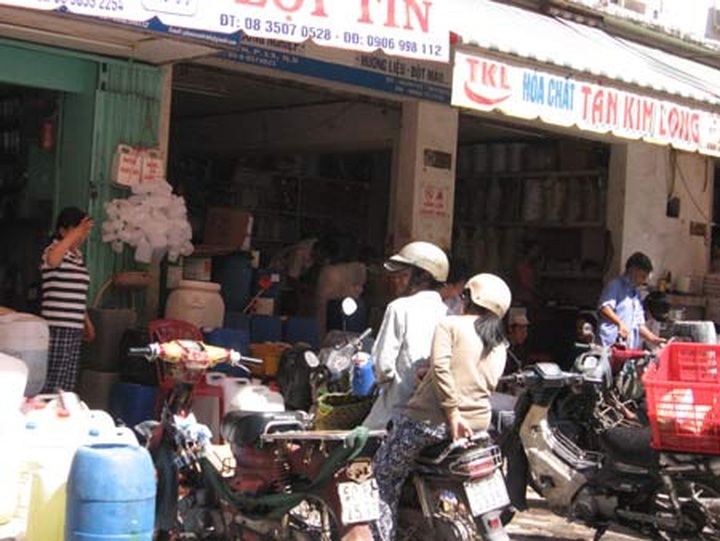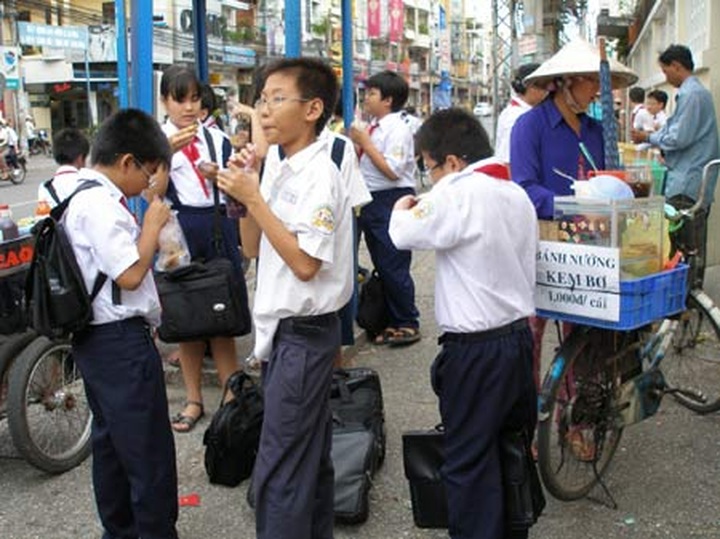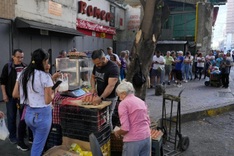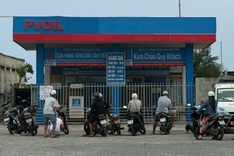The rampant use of toxic additives during the food processing and production process in Vietnam is posing a risk to public health.
Ho Chi Minh City currently lacks the ability to control the safety of the majority of the food sold in the city, said the municipal Union of Science and Technology Associations.

Many of the products sold at Kim Bien Market, known for its sale of aromatic spices and food additives, lack clear points of origin
The three wholesale markets of Binh Dien, Thu Duc and Hoc Mon alone receive around 1,000 tonnes of vegetables and fruits per day, while the city needs around 650-700 tonnes of meat per day. Authorities have detected stimulants such as axit gibberellic GA3, and clenbuterol in these products.
Many of the products sold at Kim Bien Market, known for its sale of aromatic spices and food additives, lack clear points of origin.
A litre of artificial stock flavouring costs just VND260,000 (USD12.44). Five spoons of this flavouring can replace natural ingredients.
In Hanoi, customers can also easily find hundreds of such additives at Dong Xuan Market or Hang Buom Street, including artificial flavouring and preserving agents, helping restaurant owners to save time and maintain stock for longer for just VND30,000 (USD1.43) per kilo.
Doctor Pham Kim Binh, Deputy Chief Inspector from the Ho Chi Minh City Department of Health, said that in the first six months of this year, 85 of 105 local workplace canteens inspected had violated food safety regulations and 10 had been suspended. Despite these flagrant abuses, 94 out of 105 canteens had been provided with food safety certification.
Of six samples of bread with grilled chopped meat checked, five were detected to contain borax and four samples of pork from four different canteens used banned artificial colouring.
In Vietnam, more than 300 food additives are allowed to be used but their name, content and usage must be printed on the food packaging. However, many other food additives without clear points of origin are flooding the market.
Under the current laws, only the use of toxic additives is prohibited during the food processing and production process, not their trade and transportation. This creates a loophole for the circulation of these substances, and poses a risk to public health.

Products lacking clear points of origin pose health risks




















